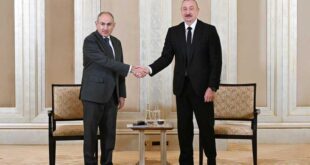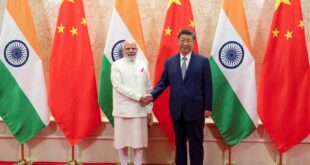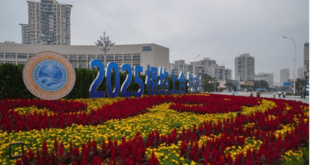Dr. Mussie Habte
For two years now, Sudan has been sinking into a brutal civil war that has devastated the country and plunged its population into an unprecedented humanitarian catastrophe. Twelve million people have been displaced, and hundreds of thousands have been killed. Women and girls have become victims of systematic sexual violence. Entire cities and villages have been razed to the ground. And yet, this war receives little international attention.
Background of the Conflict: The Failed Path to Democracy
The roots of the current civil war run deep. Sudan was ruled for decades by Omar al-Bashir, a dictator who maintained power with an iron fist, relying on a network of military forces, intelligence services, and militias. In 2019, following months of mass protests, he was overthrown. Hopes for a democratic future were high. A civilian transitional government, supported by the West and international organizations, was established. But these hopes were deceiving.
Although the al-Bashir regime was overthrown with the help of the national army and the paramilitary Rapid Support Forces (RSF), a new political order failed to emerge. The civilian government under Prime Minister Abdalla Hamdok was too weak from the outset to bridge the deep divisions within Sudan’s power structures. The country’s economic situation deteriorated rapidly, while rival factions within the security apparatus continued to gain influence.
The two most powerful actors—General Abdel Fattah al-Burhan, commander-in-chief of the Sudanese Armed Forces (SAF), and Mohammed Hamdan Dagalo, known as “Hemedti,” leader of the paramilitary RSF—became increasingly irreconcilable. The army saw itself as the guardian of state order, while the RSF, which originated from the infamous Janjaweed militias, sought to secure its growing economic influence and military power.
In April 2023, tensions erupted into open conflict, quickly spreading across the country.
A Proxy War with International Interests
The civil war in Sudan is no longer just an internal conflict; it has turned into a proxy war involving multiple international players. The RSF militia receives significant support from the United Arab Emirates, Ethiopia, and Kenya. The UAE exploits the conflict to expand its geopolitical influence in the region and gain access to Sudan’s valuable gold reserves. A large portion of the RSF’s funding comes from the illegal gold trade, with the UAE playing a key role as a transit hub. Ethiopia, which has its own territorial interests in Sudan’s border regions, is suspected of providing logistical and diplomatic support to the RSF. Moreover, Ethiopia aims to establish a weak government in Sudan that would not align with Egypt and oppose the construction of the Abbay Dam.
On the other side stands the regular army under al-Burhan, backed primarily by Egypt, Eritrea, and Saudi Arabia. Egypt sees the RSF as a threat to its security and influence over the Nile. For Egypt, a stable Sudan is crucial to maintaining pressure on Ethiopia and preventing the completion of the Abbay Dam, which poses a serious risk to its national security. For Saudi Arabia, which competes with the UAE for dominance in the Gulf, Sudan plays a strategically vital role. Control over the country strengthens its position as a regional leader and expands its influence in the Arab and Islamic worlds. Eritrea supports the SAF mainly for strategic reasons, aiming to stabilize its own security situation.
The Role of the West: Hypocrisy and Neglect
The civil war in Sudan continues largely unnoticed by the international community. While the war in Ukraine has garnered worldwide attention, sanctions, and massive aid programs, the Sudanese conflict remains absent from Western media and political discourse. There are no urgent UN Security Council meetings and no serious diplomatic efforts to achieve a peaceful resolution.
This neglect exposes the double standards of international politics. Conflicts in the Global South only receive serious attention when they directly affect the interests of major powers. The massive human rights violations, the humanitarian disaster, and the suffering of the Sudanese people are apparently not enough to mobilize the global community. The West loses credibility by selectively expressing outrage and using human rights issues as a tool when they align with its geopolitical interests.
Even humanitarian aid arrives sporadically and in insufficient quantities. The few existing diplomatic initiatives appear half-hearted and are often driven by economic or strategic motives. Meanwhile, people continue to die daily, and the suffering of the Sudanese population remains largely ignored.
The AU: A Paper Tiger without Influence
The African Union (AU) has once again demonstrated its powerlessness and weakness in the ongoing Sudanese conflict. Although the AU repeatedly emphasizes that “African problems require African solutions,” in practice, it remains largely ineffective and fails to implement meaningful measures to resolve the conflict. Its influence on the situation remains minimal, as evident in failed mediation attempts and largely ineffective sanctions against the warring parties. Instead of playing an active role in promoting a peace process, the AU remains a passive observer on the international stage, failing to fulfill its own claims of influence and capability.
A major problem of the AU is not just its inability to be taken seriously as a peace actor but also its deep-rooted structural deficiencies. The organization suffers from chronic financial dependence on external sources, particularly the European Union and the United States. This dependency weakens the AU politically and contributes to its perception as a toothless entity. The repeated failures in Sudan clearly illustrate how inefficient and powerless the AU is in its current form. While official statements continue to signal a willingness to act, concrete measures and effective initiatives are lacking.
The same applies to IGAD (Intergovernmental Authority on Development), a regional organization originally established to promote regional cooperation and peacekeeping in East Africa. However, IGAD has increasingly proven to be ineffective over the years, not only due to its structural and financial problems but also due to Ethiopia’s political influence. For years, IGAD has been heavily influenced by Ethiopia, which frequently uses the organization to advance its own political and geopolitical interests in the region. Against this backdrop, IGAD is unable to assume an independent and neutral role as a mediator, further limiting its effectiveness in the Sudanese conflict.
Conclusion: A War without End?
The civil war in Sudan is one of the worst humanitarian tragedies of our time—yet the world chooses to look away. While millions of people suffer from violence, displacement, and hunger, the international community remains largely inactive. International organizations like the UN and the African Union prove to be toothless institutions, either powerless or unwilling to exert real pressure on the warring factions. Western governments, which otherwise present themselves as defenders of human rights, show no serious interest in finding a solution. They tolerate the massacres because Sudan does not directly affect their strategic priorities.
At the same time, regional actors are exploiting the suffering of the Sudanese population for their own geopolitical interests. They supply weapons, fund militias, and further destabilize the country, while Western nations—usually quick to issue moral condemnations—watch in silence. Sudan is not an isolated conflict; it is a stark example of a world order in which human suffering only gains attention when it serves strategic or economic interests.
Even though the Sudanese army has recently gained significant territorial control, this does not signal the end of the conflict. A lasting peace cannot be achieved through military means—it requires serious negotiations and a political solution. As long as the warring parties fail to recognize that there can be no military victory without long-term consequences, the violence will persist. Even in the event of an agreement, the wounds of this war will remain deep. The Sudanese population will continue to suffer from the destruction, trauma, and destabilization. Without sustainable political reforms and international support, Sudan risks remaining trapped in a cycle of violence and instability, regardless of shifting military dynamics.
 Geostrategic Media Political Commentary, Analysis, Security, Defense
Geostrategic Media Political Commentary, Analysis, Security, Defense





